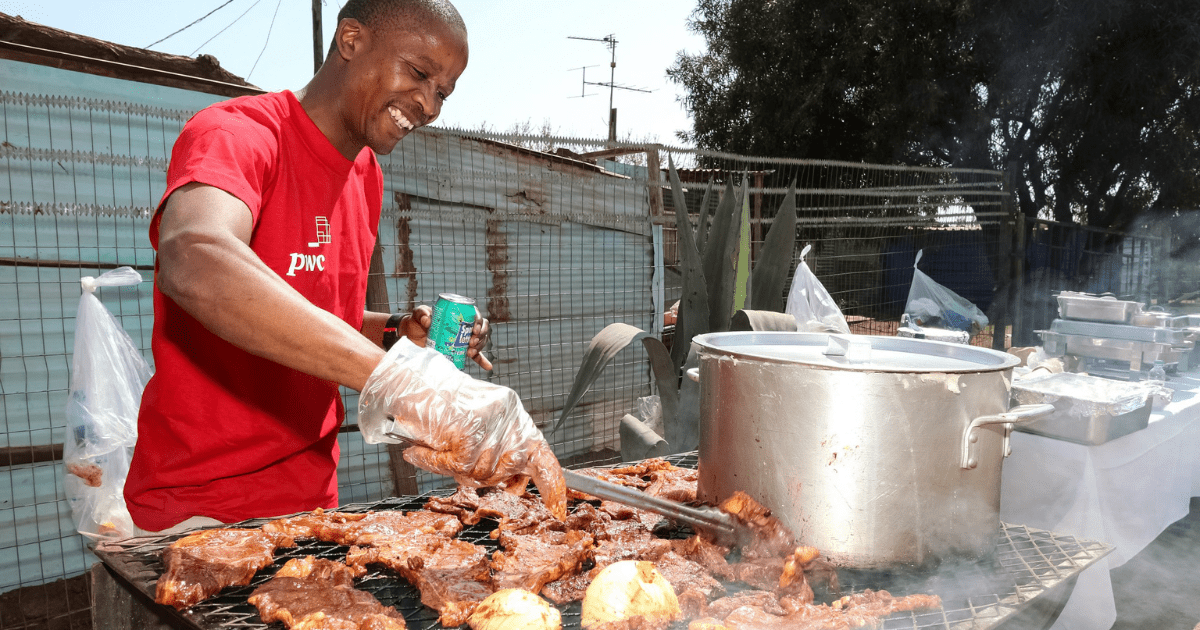
Launching a shisanyama business is a popular venture for South African entrepreneurs. Shisanyama offers a profitable market opportunity. With the right business and location, like Centurion Shisanyama, you can turn a humble ‘buy and braai’ into a lucrative enterprise.
In this guide, we’ll run through everything you need to know about planning and launching a shisanyama business.
Shisanyama Industry Overview
When it comes to township business ideas and opportunities, shisanyama businesses remain one of the most popular options. Shisanyama places form the heart and soul of many townships. They’re the popular gathering place where locals braai meat and socialise. If you start a popular Shisanyama place in a busy area, like Centurion Shisanyama, then you’ll be able to tap into a very busy market.
Shisanyama Industry Trends
A shisanyama business is unique to South Africa. Shisanyama is so much more than just a type of food service, it’s a cultural experience. This is why Shisanyama places have become increasingly popular tourist destinations. They are also popular places for people living outside of townships to visit.
Because of this rising popularity, many Shisanyama businesses are spreading outside of townships. Just look at Centurion Shisanyama, a hotspot on the outskirts of Pretoria. With Shisanyama franchises available, and growing demand for unique food experiences, this industry is presenting many new trends and opportunities.
Success Stories
Shisanyama is a simple concept with humble beginnings. The idea is to ‘buy and braai’, where you buy meat from a township butchery, braai it outside the butchery, and socialise in an informal setting.
The popularity of this business model has resulted in a few very successful businesses.
Centurion Shisanyama is a great example. Centurion Shisanyama is a vibrant Shisanyama joint in a busy area of Gauteng. While they kept the simple shisanyama concept, the businesses attract large crowds of tourists and locals looking for a more upmarket shisanyama experience. Centurion Shisanyama has changed the perception of these businesses from a small township braai to a major outdoor restaurant and tourist attraction.
Mzolis in Cape Town is another popular shisanyama success story, attracting huge crowds of tourists and locals every year.
Shisanyama Industry Challenges
Finding the right location is everything for a good shisanyama place. This can be difficult in townships, where infrastructure is limited. And like any informal township business, owners can have difficulties accessing seed capital or offering collateral for business funding.
As most shisanyama places are started in township residential areas, it can also be tricky to access bulk orders and food delivery services. Small shisanyama businesses also have to compete with large fast-food companies.
Shisanyama Opportunities Available
With the right busy location, there are many shisanyama business opportunities available. Most shisanyama places start independently, although there are also shisanyama franchise opportunities that exist.
TREP funding opportunities are available to help develop and launch shisanyama businesses.
Shisanyama Laws and Regulations
Starting a food service business requires the right licenses and permits. Any shisanyama business needs to have a business license, as well as a certificate of acceptability to be able to prepare and serve food. If you plan to serve alcohol, you will also require a liquor license.
It’s important to contact your local municipality to understand the specific laws and regulations around launching a shisanyama business in your chosen area.
Getting Started
Starting a shisanyama business is a relatively low-barrier business compared to traditional restaurants.
Shisanyama Setup Costs
The cost of setting up a shisanyama business will vary greatly depending on your location, the size of the business, and how upmarket you want to make it. For example, an operation like Centurion Shisanyama will cost significantly more than a small-scale township enterprise.
Some setup costs to consider include your location costs, braai/cooking facilities, tables and chairs, fridges, signage, electronics (speakers, till, computer, etc), and your stock.
Starting a shisanyama franchise, like ChesaNyama, can cost around R20,000 per ㎡ (excl VAT).
Must-Have Tech Tools
You’ll need more than just a braai to run a shisanyama business. Some important tech tools include your point of sale (POS) system, which you can use as a mobile app or through a dedicated hardware system. You’ll need a laptop to manage your business from, and should use accounting software and an inventory management system.
Whether it’s a food truck or a big outdoor shisanyama place, informal food service businesses offer significant opportunities for entrepreneurs.
As long as you find the right location, follow the necessary laws and regulations, and plan your shisanyama business properly, it could result in a highly profitable venture.





